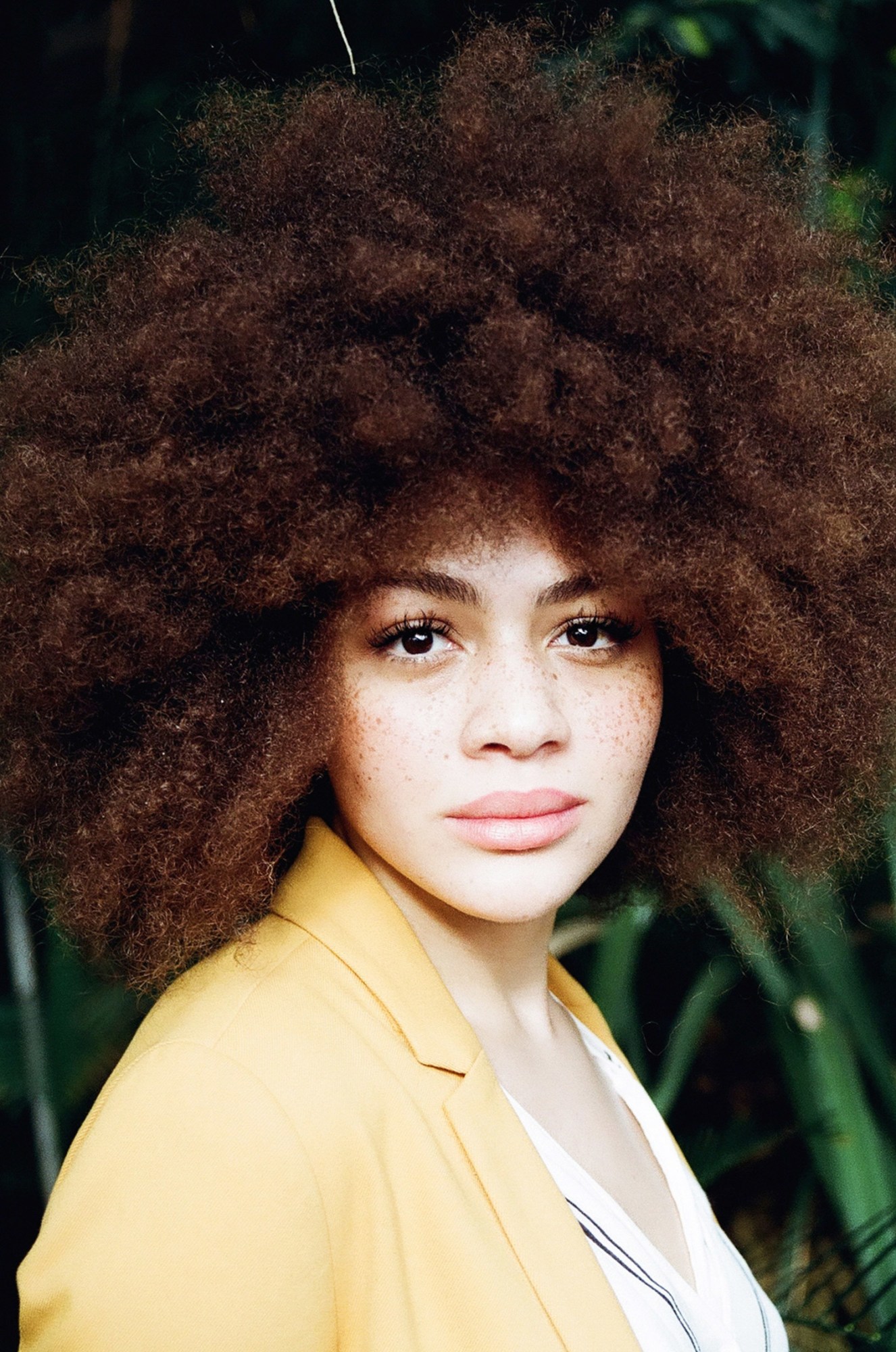In Germany the body-positive movement is finally tipping over into mainstream consciousness, but it has some glaring limitations. “Love your body and forget about the BMI,” says the average thin white girl. Growing your body hair long is not the big deal it used to be for most young German women. But, women of color, particularly African-German women, are noticeably absent from this discussion. A long history of racism and exclusion is still at work, and though the movement to change this is growing, there’s a lot to do. To find out about the everyday experiences of African-German women when it comes to their hair, we hit the streets of Berlin.
i-D Hair Week is an exploration of how our hairstyles start conversations about identity, culture and the times we live in.
This article was originally published by i-D Germany.
Julia Dalia, 25, model
How much does hair have to do with self-acceptance?
My parents had literally no idea about what to do with my hair. I’ve never thought of my hair as pretty, either. As a child, I always wanted to be the blonde girl with blue eyes. When I was 22 or 23, I found a girl on Instagram who had huge curly hair and who was giving advice on how to take care of an afro. That was such a revelation! Everybody has their own hair type, and it has its own creative energy. And in order to accept it, you first have to get to know it.
Working as a model, does your afro limit you, or is it an advantage?
Most of the time it’s an advantage. In the ads I’m always the token African-American woman, the smiling afro girl. I like to concentrate on my advantages, though, and don’t take it all too seriously.
Have you ever had negative reactions to your natural hair at work or somewhere else?
There was an older lady who changed seats on a bus because of my hair.
Amandla Stenberg criticized Kylie Jenner for her cornrows, braids are once again a big trend, and traditional African hairstyles like bantu knots have been ddescribed as “mini buns” in fashion mags — cultural appropriation is a big topic. What do you think about it?
It’s nice to take inspiration from other cultures. But it’s also a difficult topic. You shouldn’t just take the nice parts and ignore the difficult ones. You have to deal with the culture to understand it. It’s not okay to use our culture just to make money. This is where I understand the outrage. But I don’t have a problem with white people having braids.
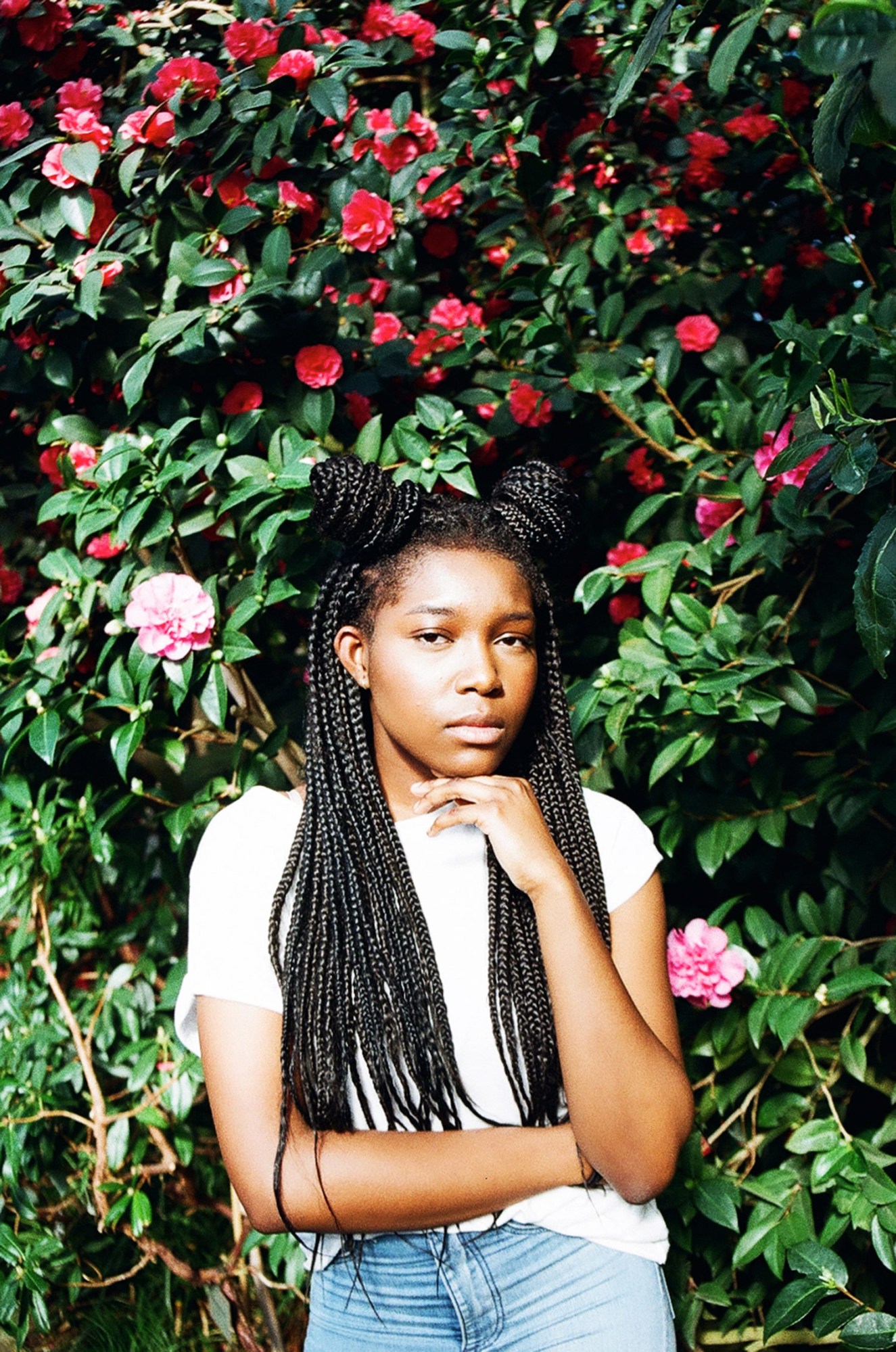
Maame Asamoah, 19, business administration student
What does hair have to do with self-acceptance?
When hair is frizzy or really curly, that’s the way it is — the natural hair movement doesn’t mean we all have amazing curls. It means a lot more. You have to learn to deal with your hair. If African women accept it, only then will the movement make sense. Social media once again plays an important role, too. On Instagram, a woman with short, frizzy hair won’t get as many likes as one with a really big mane of curls.
What does your hair mean to you?
My hair is quite important to me. I’ve been trying to stop my friends from straightening their hair, but I don’t judge the ones who say they want to keep straightening it.
When did you stop relaxing your hair?
I watched a YouTube video of a dark-skinned German blogger. Her hair was chemically straightened, rather short, and really damaged. She said all people of African heritage have hair like hers. Shortly after, I randomly watched a video of an African-American girl and her hair was natural. I realized that our hair can grow and that it’s the chemicals that destroy it. It motivated me and I started watching more and more videos of African-American girls with natural hair in the US, and I didn’t straighten my hair chemically for a year. When I went to Ghana in 2012, I had my straight hair cut off and since then I’ve kept it natural.
What are your feelings about cultural appropriation of hairstyles?
It’s weird. You see all these girls walking around with braids and it’s considered cool. But I remember when I went to school with my cornrows, other kids would laugh at me. Now when you ask people why they want their hair like that they often say they’ve seen it on Kylie Jenner and thought it looked cool. That’s when I get angry. I don’t really know what to think about it.
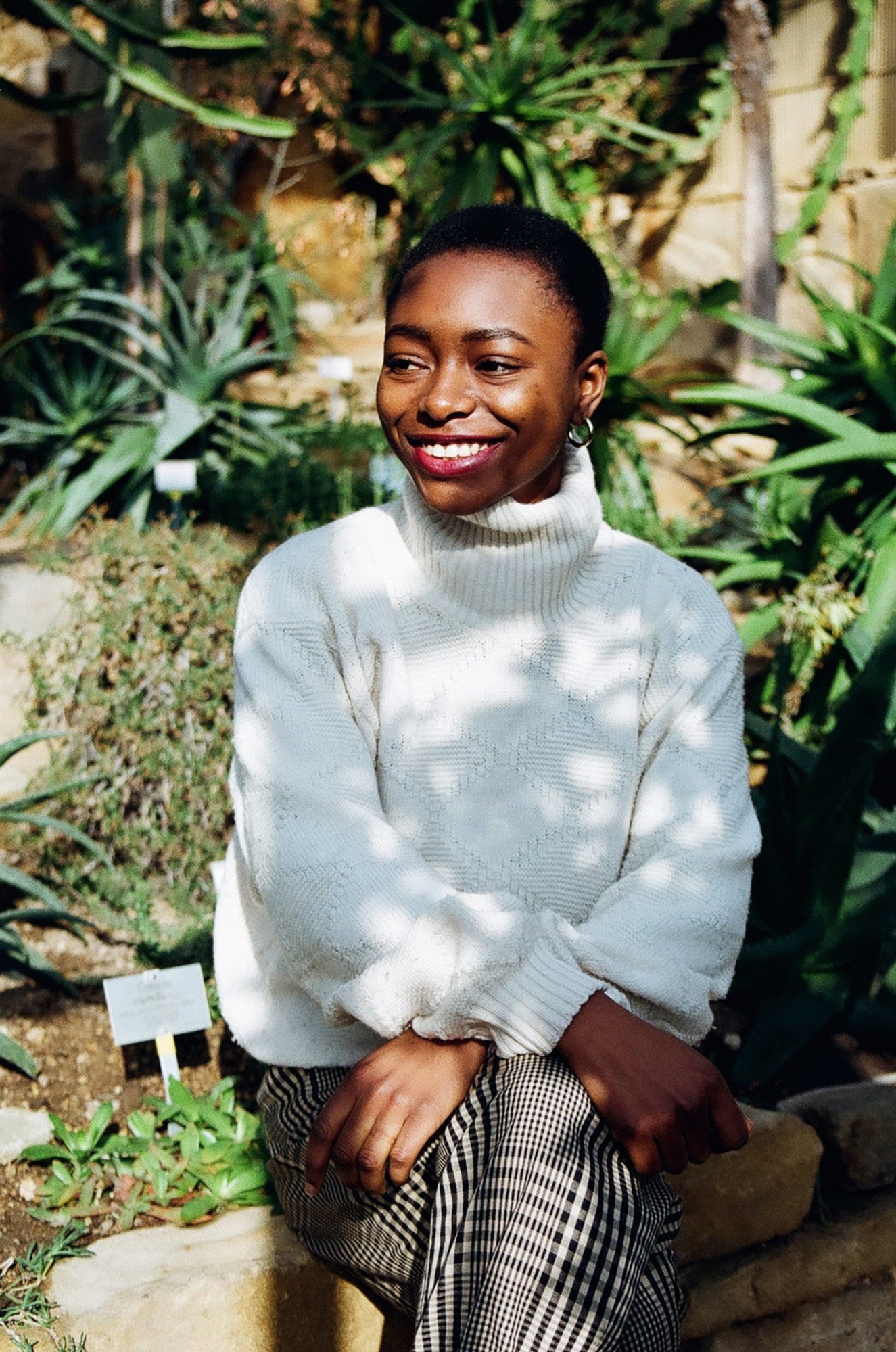
Josy Kutombo, 23, clothing technology student
What does your hair mean to you?
During a school trip we visited the concentration camp in Auschwitz. A guide told us that back then, the prisoners’ hair was shaved off against their will. The idea of somebody stealing my identity made me realize the meaning of hair. That’s when I started appreciating myself and my hair.
What needs to change here to stop the pressure for women to have long straight hair?
I grew up in a small town and was surrounded by white German people. My best friend was blonde and had blue eyes. I always wanted to look like her. For me, my hair was always a problem. It hurt to comb it and hairstyles weren’t an easy topic either. The things we see in our environment and in the media shape our beauty ideals. We have to work on that.
What are your feelings about cultural appropriation of hairstyles?
All these people like Kylie Jenner and Riff Raff who are appropriating our culture — I can’t take them seriously.
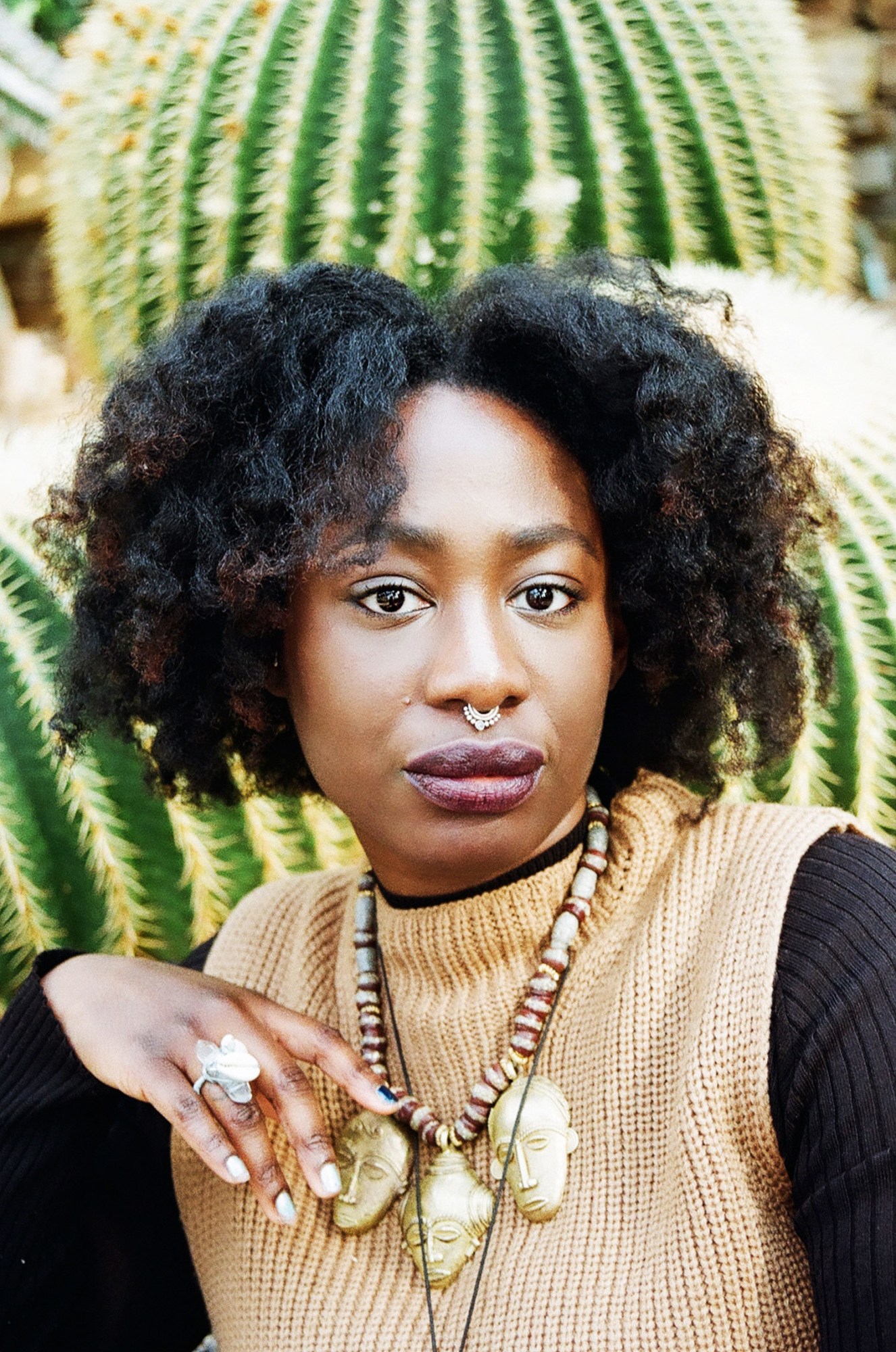
Sharonda Osei-Agyemang, 26,fashion design student
What does hair have to do with self-acceptance?
A lot. We’re black and we’re from Africa. Our hair comes in many different forms — you can be a dark-skinned African woman and still have big curls, or be a light-skinned African woman with very frizzy hair. It doesn’t mean one hair type is more African than the other. Both are beautiful but not everybody wants to accept it. My hair type is the frizziest of all. A lot of people think it’s ugly, they straighten their hair chemically.
What does your hair mean to you?
It’s very important, especially because I have to take care of it, a lot. Sometimes I have to stay in, all day, because it takes a whole day to do my hair-care routine!
What are your thoughts on the issue of some employers discriminating against people with afros?
I think it’s more of a historical and political problem. Colonialism has forced all of us into white culture and we’ve become estranged from our own. That’s why today, black people in Europe or America sometimes want to look like white people. Straightening your hair can be seen as an act of assimilation, in order to be accepted into white society. Now that’s being challenged and we’re starting to find our way back to ourselves and to our roots. Some people think that’s a protest. I think it’s ridiculous to describe our hair as unprofessional.
What are your feelings about cultural appropriation of hairstyles?
Black girls sometimes get sent home from school because their natural hair or their braids are considered inappropriate. But if Kylie Jenner wears fake dreadlocks on the red carpet, all of a sudden it’s cool. Some Germans have a problem with people here of African heritage, but they benefit from our culture. That’s not okay. It’s a difficult topic because there’s a difference between cultural appropriation and cultural exchange. If I let you in on my culture and my mom does your hair or you come over to have dinner with us, that’s totally okay. But if you just pick something from my culture only because it’s cool right now, without ever really looking into it, that’s a problem. My culture is not a trend!
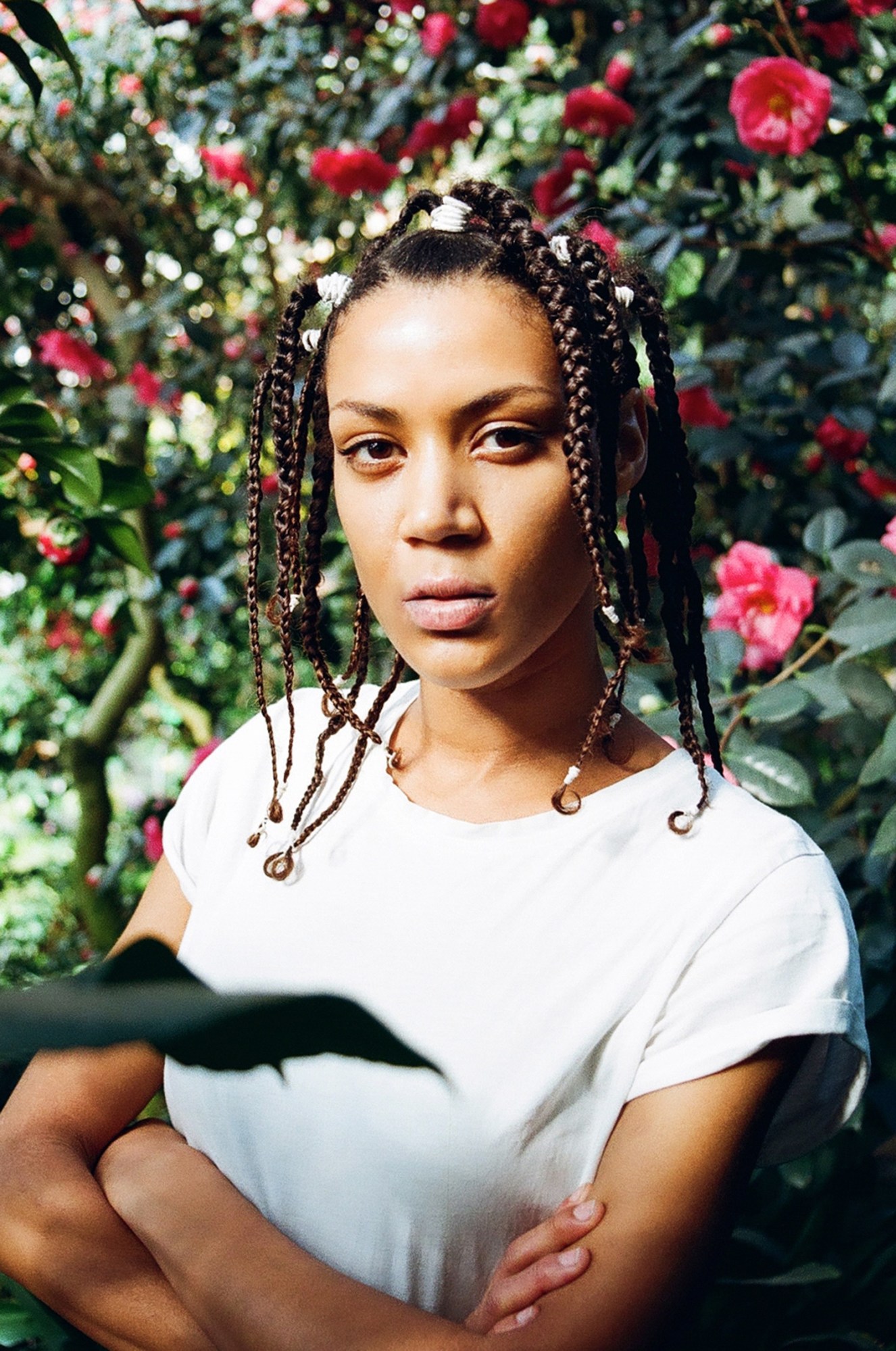
Salimata, 28, model
What does hair have to do with self-acceptance?
My mom, who’s German, didn’t really know what to do with my hair. In kindergarten I would always get sand in it and everyone said it was too frizzy — that’s why my hair was always cut really short. As a child, I always wore a ponytail, because I didn’t have the long, straight, pretty hair the other girls in school had. It was only as a teenager that I started to deal with my hair and try out new hairstyles. Now I just let it grow and accept myself the way I am.
There’s a lot of pressure felt by young women of color to alter their natural hair — how do we change that?
My son has very light skin and blonde, straight hair. It’s the other way around with him. He keeps telling me he’d like to be darker and he doesn’t really understand why he doesn’t look like me. But if he had any problems with himself or his hair, if it was like mine, I’d send him to kindergarten with his curly hair and teach him that he should accept himself the way he is.
What are your feelings about cultural appropriation of hairstyles?
A cultural exchange is always good and important, that’s how we broaden our horizons. But it’s always important to look at how it’s done and what the real motives are. The media is so dominant and most people just imitate what they see on celebrities, without knowing anything about the original culture behind it.
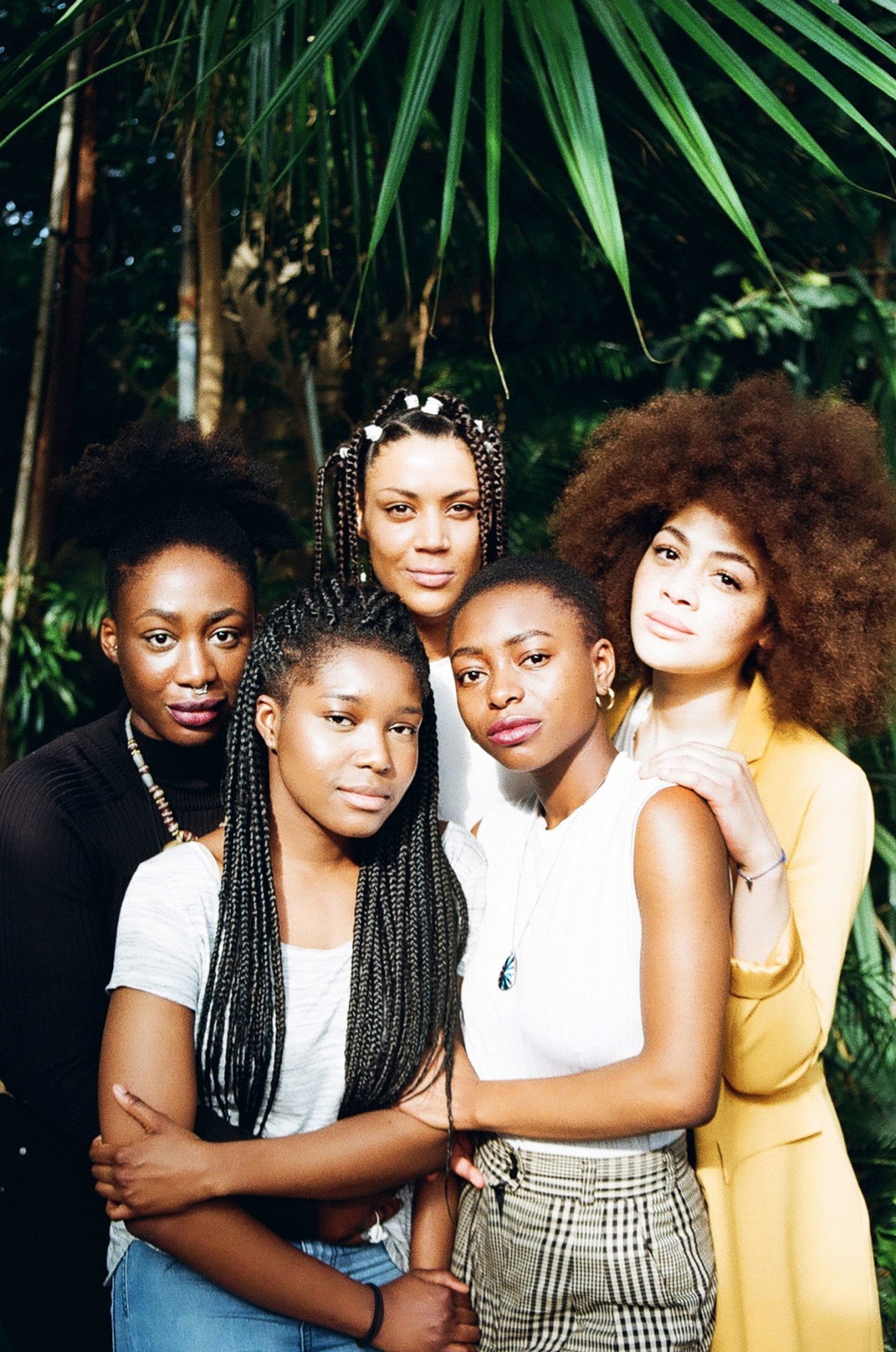
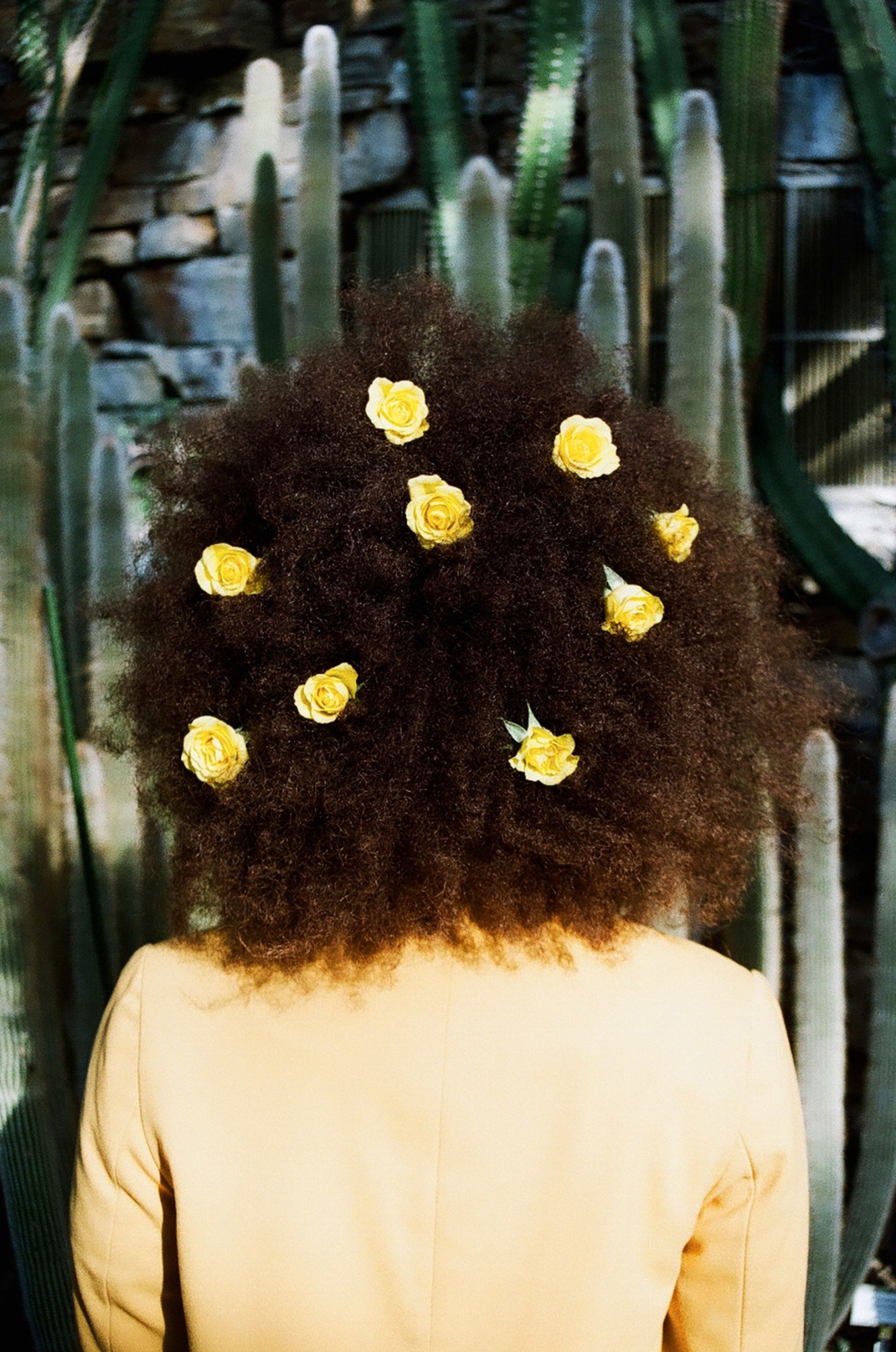
Credits
Text Naomie Chokoago
Photos Joseph Wolfgang Ohlert
